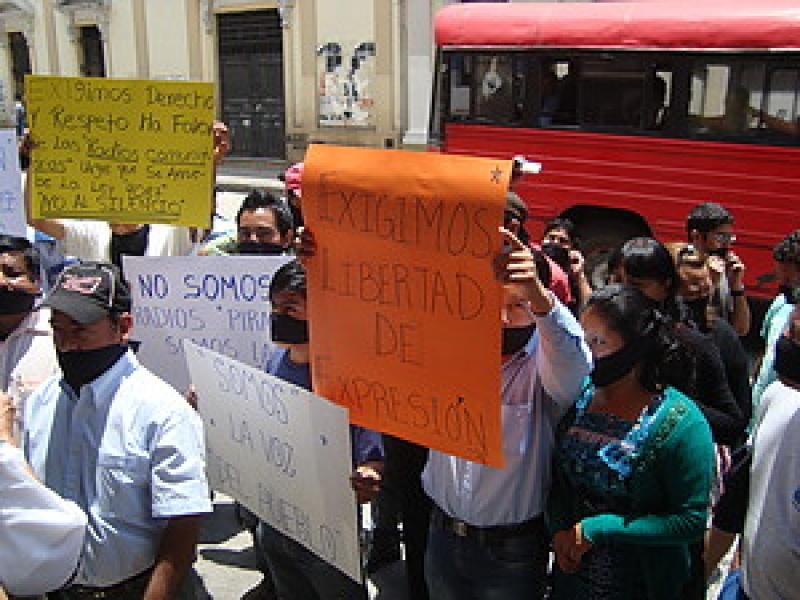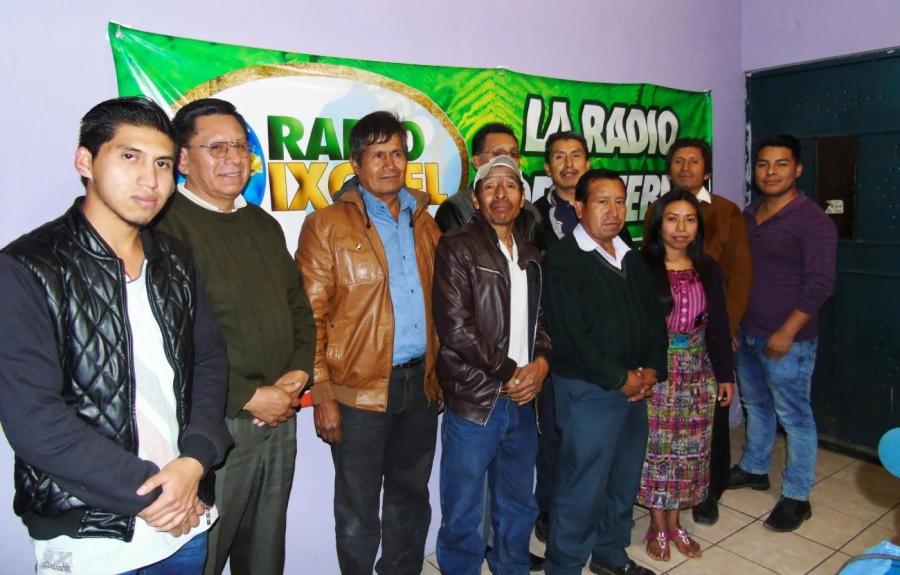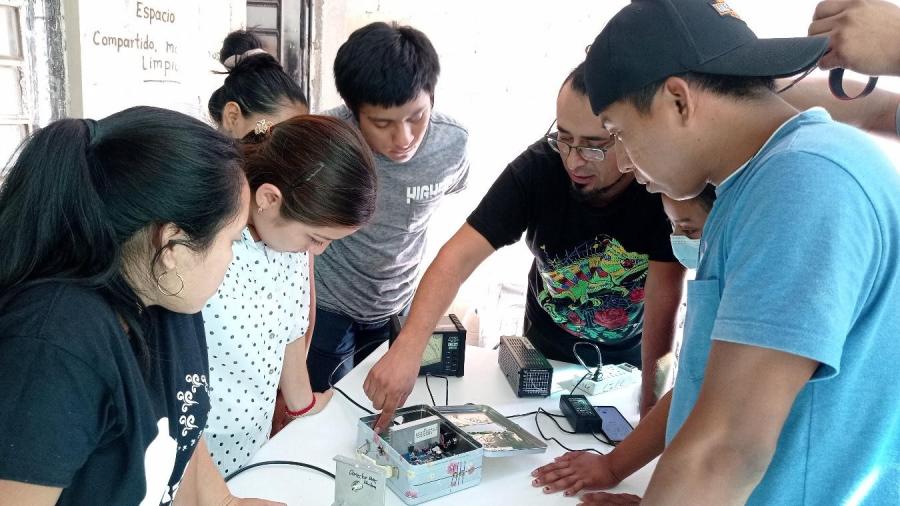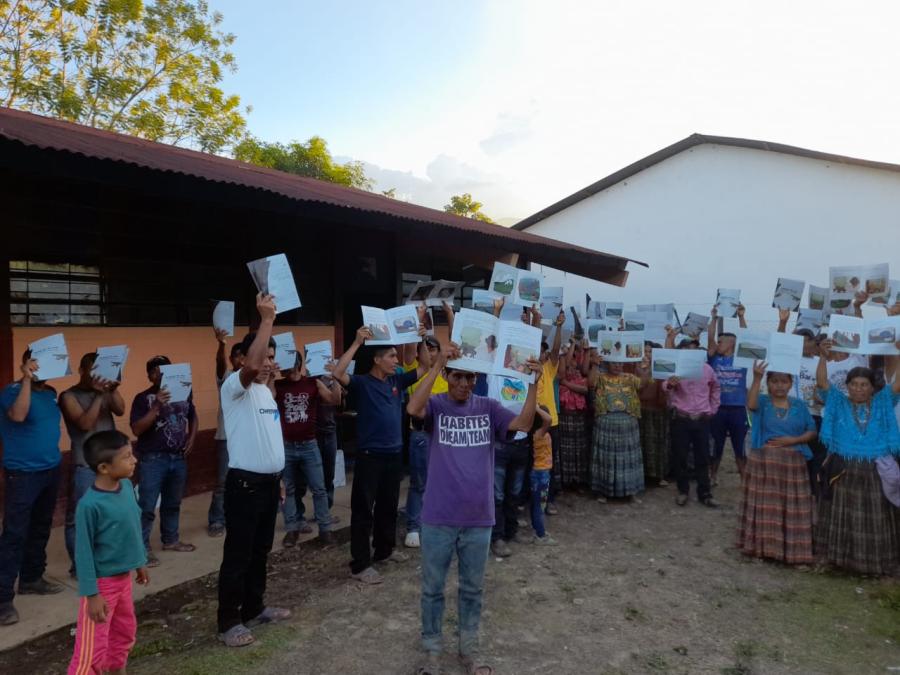
For Immediate Release.
Contact: Mark Camp, Deputy Executive Director, mcamp@cs.org 617-441-5400 x11
Agnes Portalewska, Communications Manager, agnes@cs.org 617-441-5400 x14
Increased International Pressure Needed To Legalize Community Radio in Guatemala
On January 29, 2014, Cultural Survival, a Cambridge-based Indigenous Peoples’ rights organization, submitted a Statement of Information on the Prohibition on Indigenous Peoples Community Radio Stations in Guatemala to the United Nations Special Rapporteur on the Rights of Indigenous Peoples, James Anaya as a measure to further call attention to the violation of Indigenous Peoples’ freedom of speech in Guatemala.
Community radio has had a presence in Indigenous communities around Guatemala since the 1960s. Indigenous Peoples in Guatemala rely on community radio to keep their cultures, languages, and traditions alive as well as to inform their communities about issues and events relevant to their lives. Because of its relatively low cost, community radio is an accessible tool. However, the laws of Guatemala do not allow for any form of non-profit radio, including community radio. Instead, Guatemala only provides for commercial and government use of radio frequencies; obtaining a commercial license is done through a bidding process with the highest bid winning. As a result, the vast majority of Guatemala’s Indigenous communities are unable to legally operate community radio stations; only a rare few have been successful in the awarding of a frequency. Instead, many Indigenous communities operate community radio stations illegally, typically borrowing frequencies that are not in use, but always under the threat of raids, confiscation of costly equipment, and imprisonment by government officials.
Since the Peace Accords ending Guatemala’s Civil War were signed in 1996, Indigenous communities have been working together to push the government to change these discriminatory laws. As explained in more detail below, this strong and vibrant lobbying effort led to a 2010 legislative bill that would have legalized community radio. That bill was awarded a favorable recommendation by a Congressional subcommittee but was later shelved, continuing to leave radio stations and operators vulnerable to persecution and raids. A community radio movement emerged in Guatemala after it became clear that ensuring that Indigenous Peoples have access to communications media was not a priority for the Government of Guatemala. Lobbying campaigns to change the current General Telecommunications Law are numerous. Hundreds of Indigenous community members have traveled to the capital to lobby Congress on behalf of community radio stations. Thousands have participated in public demonstrations and marches.
The Special Rapporteur has recognized the role that media plays in protecting Indigenous Peoples’ rights to freedom of expression, which includes the right to seek, receive and impart information, culture and participation, paying attention specifically to community radio. Community radio, as a form of media, is linked to the maintenance of languages and cultures, is a valuable tool to educate children, and promotes democracy by advancing participation and non-discrimination.
On behalf of Indigenous communities in Guatemala operating community radio stations or wanting to, three organizations, Cultural Survival, La Asociación Sobrevivencia Cultural, and Asociación Mujb’ab’l Yol (Encuentro de Expresiones) submitted a Statement of Information pursuant to the mandate of the UN Special Rapporteur on the rights of Indigenous Peoples to “receive…information and communications from…communities and organizations, on alleged violations of their human rights and fundamental freedoms….”
The petitioners are three separate organizations devoted to ensuring that Indigenous communities are able to exercise their rights to culture, language, freedom of expression, and political participation. Cultural Survival, La Asociación Sobrevivencia Cultural, and Asociación Mujb’ab’l Yol (Encuentro de Expresiones) view Indigenous community radio as a crucial tool for Indigenous Peoples and are therefore committed to building the capacity and supporting existing Indigenous community radio stations in Guatemala.
As recognized by the international community and as provided for in the United Nations Declaration on the Rights of Indigenous Peoples, access to all forms of media, including radio, is an essential means for Indigenous Peoples to exercise many of their human rights, including culture, language, participation and freedom of expression. Despite a commitment from the Government of Guatemala nineteen years ago to provide access to radio frequencies in a non-discriminatory manner to Indigenous Peoples, the Government continues to fail in meeting its human rights obligations.
“We have submitted a petition to the UN Special Rapporteur on the Rights of Indigenous Peoples in order to increase international pressure on the Government of Guatemala to provide a way for non-profit Indigenous community radio stations to acquire broadcast licenses. The government promised to do so 18 years ago in the Peace Accords that ended the civil war, but continue to drag their feet. The tireless efforts of many Guatemalan citizens has led to a favorable recommendation of the Proposed Community Media Law, Initiativa 4087, from the Indigenous Peoples Committee in the Congress, but additional pressure is needed to make that Bill into a Law,” said Mark Camp, Deputy Executive Director of Cultural Survival.
For more background information, go here.
###



